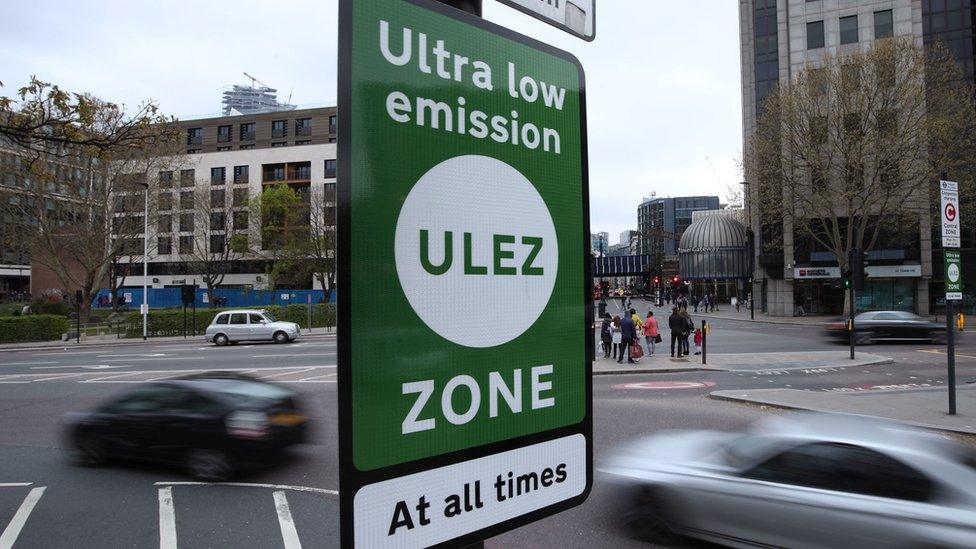Ulez: Complaints upheld over four radio adverts
- Published
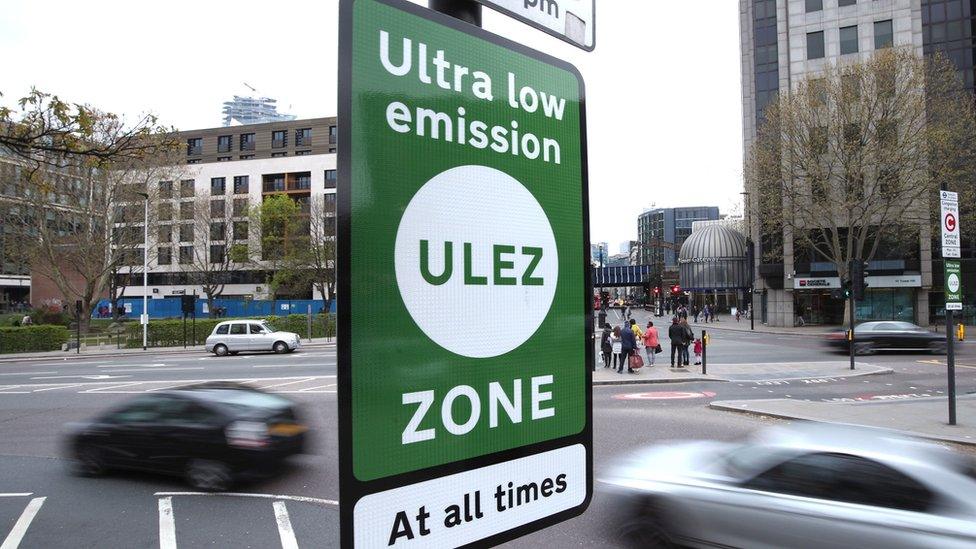
Complaints were made about six Transport for London (TfL) adverts and one Greater London Authority (GLA) advert
Complaints about adverts promoting London's ultra-low emission zone (Ulez) have been upheld by the Advertising Standards Authority (ASA).
It found issues with three radio adverts created by Transport for London (TfL) and one radio advert from the Greater London Authority (GLA).
It followed more than 500 complaints into six TfL adverts and 38 into GLA's.
TfL said it believed the information, "which was based on robust scientific evidence, was clearly presented".
A London mayoral spokesperson said they would take the ruling into account when drafting the wording and referencing for future GLA adverts.
The ASA ruled the three TfL adverts, which consisted of two grounds for complaint, "were likely to mislead" because the basis of the claims they made were not "given" or "explained".
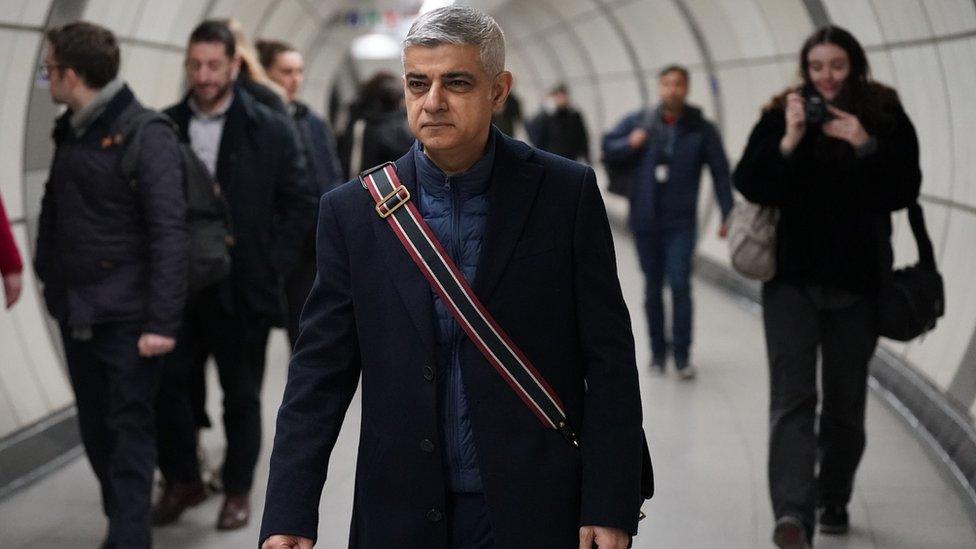
A spokesperson for London mayor Sadiq Khan says the ruling will be taken into account for future adverts
Two adverts said that nitrogen dioxide (NO2) had reduced by almost half since the implementation of the Ulez in central London.
The ASA said these figures were based on "the calculated difference between a non-Ulez and an Ulez scenario", with the NO2 reduction calculated by TfL using data showing how levels were impacted by traffic but also by factors outside of Ulez, such as a national shift to newer, less polluting cars.
The ASA said the figures were likely to be understood by listeners to mean a reduction recorded by air quality sampling "before the introduction of the charges and since the implementation of the central London Ulez".
A third advert said that "most air pollution-related deaths actually occur in Outer London areas".
The ASA said TfL did not clarify that the claim was based on "modelled estimates" based on data.
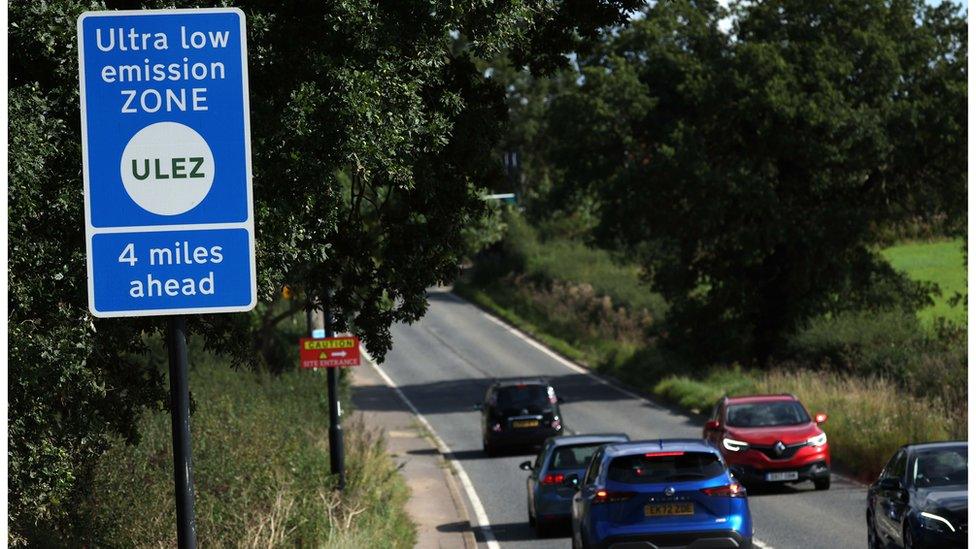
TfL and the mayor said the rulings focused on a "minor technical point"
"We considered that listeners were likely to understand from the claim, which referred to 'actual' deaths, that the evidence supporting the claim was not estimated or modelled in anyway," it said.
'Standard practice'
TfL said future use of the statements on NO2 and air pollution-related deaths would be followed by a footnote explaining the claims.
A TfL spokesperson said: "Scientific analysis based on modelled scenarios and estimates is standard practice in the scientific community and central government.
"The ASA did not challenge the science. Its ruling centres around a minor technical point in some adverts. We will take this into account when drafting the wording and referencing in any future adverts."
They added: "The expansion of the Ulez is playing a crucial role in the reduction of air pollution - improving air quality for everyone in London and reducing the harms to health associated with vehicle emissions."
The ASA also upheld a complaint into a Greater London Authority (GLA) advert.
The radio advert, which received 38 complaints, said that "according to research, one of the most polluted places in London is inside your car".
The ASA said the claim had not been "adequately substantiated" and was "likely to materially mislead".

Analysis
Tim Donovan, BBC London political editor
So, six grounds for complaint. Three upheld. Three not. On the face of it, honours even in this Ulez (dis)information war.
However, no public authority or figure wants to be found to have made any misleading claims about a flagship public policy.
First some good news for Transport for London and the mayor, Sadiq Khan.
It was ok for adverts to say the capital had an "urgent air quality" problem because there are still parts of the capital which breach legal limits.
There were forecast to be "moderate to negligible" benefits from Ulez expansion - so it was fine to say it would "help" deal with poor air.
And it was acceptable to link air quality with dementia.
But then the bad news.
It was wrong to claim Ulez had reduced nitrogen dioxide (NO2) in central London by nearly half. There is no before and after study to back this up.
This should have had a big caveat attached: it was a "calculation" based on estimating what would have happened without Ulez.
Similarly, it was unacceptable to make a claim about "actual" deaths, rather than "modelled estimates" based on data.
And claims about pollution inside your car were misleading without proper comparisons.
So, a very clear censure over this public info campaign, even if complainants have not got all they want.

This was because research used to back up the statement did not make a direct comparison between the level of air pollution within a car in London to a variety of other locations and contexts around London, the ASA said.
It told both TfL and the GLA to ensure that claims in future adverts related to relevant evidence more closely.
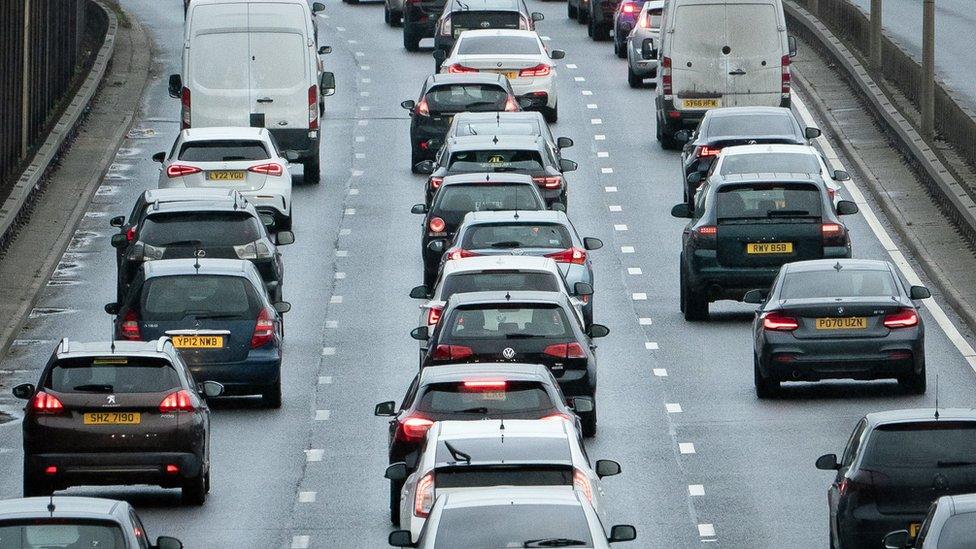
The ASA has told both TfL and the GLA to ensure future adverts have claims that more closely relate to relevant evidence
A spokesperson for the Mayor of London Sadiq Khan said the GLA ruling centred around a "minor technical point", which would be taken into account in the future.
"The ASA is not challenging the science behind the advertisement, and we are confident that it contains nothing misleading," they added.
"The advert went through a robust policy and industry approval process.
"There is clear agreement among experts and scientists that being a driver or passenger in a vehicle is one of the spaces where you are most exposed to traffic-related air pollution."
They added: "We are satisfied with the science behind the claim and how we presented it."

Listen to the best of BBC Radio London on Sounds and follow BBC London on Facebook, external, X, external and Instagram, external. Send your story ideas to hello.bbclondon@bbc.co.uk
- Published22 February 2023
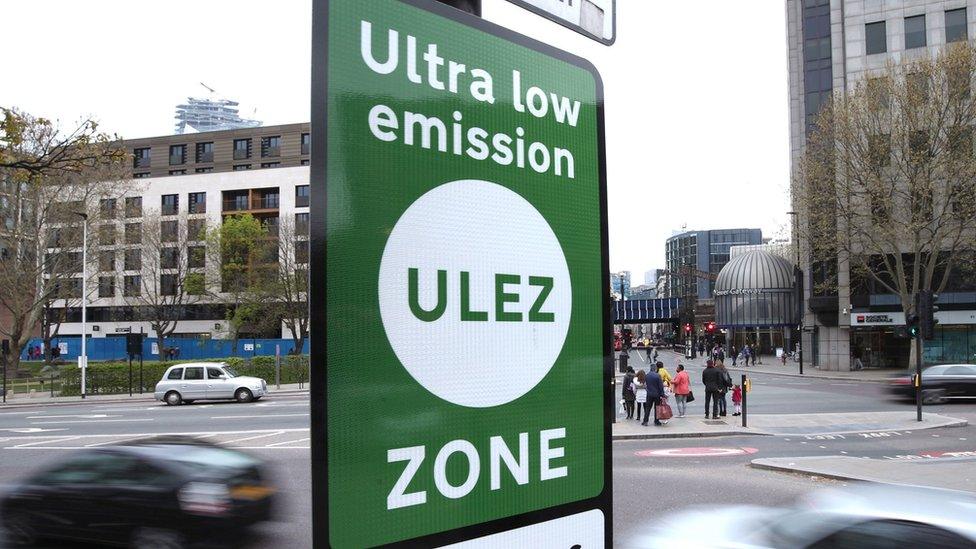
- Published4 August 2023
